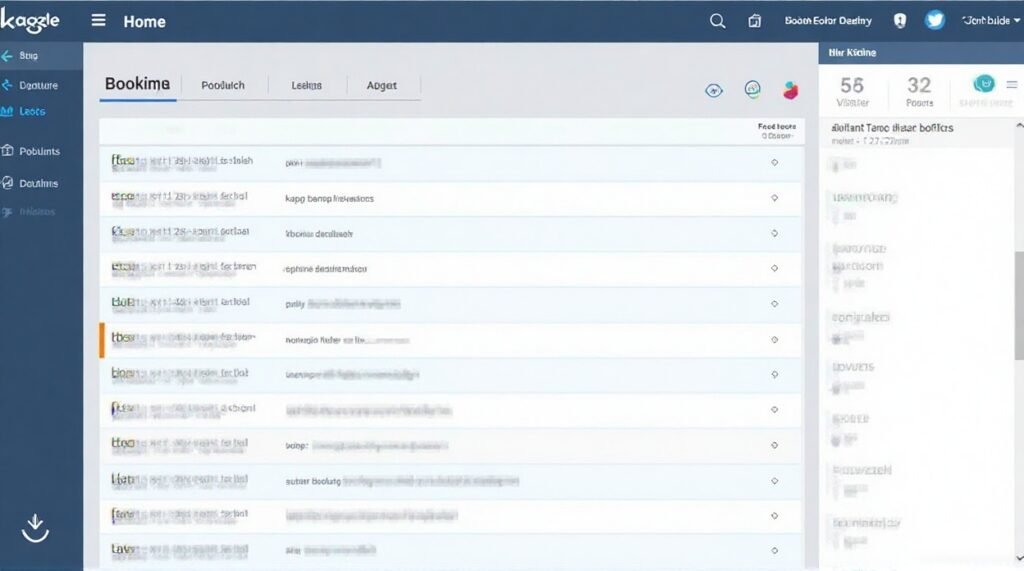Discover 25+ creative AI project ideas for beginners in 2025. From chatbots to image recognition, start your AI journey with practical, beginner-friendly projects.
Remember when AI felt like something straight out of a sci-fi movie? Those days are long gone. Today, artificial intelligence is as accessible as your morning coffee—and just as essential for staying relevant in our tech-driven world.
I’ve been diving into AI projects for the past few years, and let me tell you: the barrier to entry has never been lower. Whether you’re a college student looking to beef up your portfolio or a young professional pivoting into tech, AI project ideas aren’t just trendy—they’re your ticket to understanding the language that’s reshaping every industry.
The beauty of starting with AI beginner projects is that you don’t need a PhD in computer science or a Silicon Valley budget. What you need is curiosity, a decent laptop, and about 15-30 hours to dedicate to your first project. Sound doable? Let’s dive in.
Why AI Projects Matter More Than Ever in 2025
The AI revolution isn’t coming—it’s here, knocking on your door with opportunities you can’t ignore. Companies are scrambling to integrate AI into everything from customer service to creative workflows. But here’s the kicker: they need people who actually understand how this stuff works, not just the theory.
Practical AI projects serve as your playground and your proving ground. They’re where you’ll make mistakes, have those “aha!” moments, and build something tangible that screams “I get it” to potential employers or clients.
Think of AI projects as your digital apprenticeship. Each one teaches you something new about machine learning project ideas, data handling, or problem-solving. Plus, they’re incredibly satisfying when they work—there’s nothing quite like watching your first chatbot respond intelligently or seeing your image recognition model correctly identify a cat.
Getting Started: What You Actually Need
Do I Need Coding Skills to Build AI Projects?
Here’s the honest truth: it depends on what you want to build. No-code AI project ideas are absolutely possible and increasingly popular. Platforms like DataRobot and RapidMiner Studio let you drag, drop, and deploy without writing a single line of code.
But if you want real flexibility and deeper understanding, basic coding skills will unlock significantly more possibilities. Don’t worry—you don’t need to be a programming wizard. Many easy AI project ideas for beginners require just elementary Python knowledge.
What Programming Languages Are Best for AI Projects?
Python dominates the AI landscape, and for good reason. It’s beginner-friendly, has incredible libraries like TensorFlow and PyTorch, and there’s a solution for almost any AI challenge you’ll encounter.
R is excellent for statistical analysis and data science projects, while JavaScript is making waves with TensorFlow.js for browser-based AI applications. But honestly? Start with Python. It’s the Swiss Army knife of AI development.
Where Can I Find Datasets for AI Projects?
This question used to keep beginners up at night, but not anymore. Here are my go-to sources:
- Kaggle: The Netflix of datasets, with competitions that make learning competitive and fun
- Google Dataset Search: Like Google, but for data
- UCI Machine Learning Repository: The old reliable—tons of clean, well-documented datasets
- Government open data portals: Real-world data straight from the source

25+ Creative AI Project Ideas That Actually Matter
Beginner-Friendly AI Projects (0-3 months experience)
1. Sentiment Analysis Movie Review Classifier
Start with movie reviews and teach your AI to understand emotions. It’s like giving your computer feelings—but without the existential crisis.
What you’ll learn: Natural language processing, text preprocessing, classification algorithms Time commitment: 20-30 hours Tools: Python, NLTK, scikit-learn
2. Personal Finance Expense Categorizer
Build an AI that sorts your receipts and expenses automatically. Your future self (and your accountant) will thank you.
Real-world application: Personal budgeting apps, business expense management Difficulty: Beginner Dataset: Your own banking data or synthetic financial records
3. Weather Prediction Model
Create a simple weather forecasting system using historical data. It might not beat meteorologists, but it’s a fantastic introduction to time series analysis.
4. Music Recommendation Engine
Build a Spotify-style recommendation system. Start simple with genre-based suggestions, then get fancy with collaborative filtering.
What makes this cool: Understanding recommendation algorithms that power Netflix, Amazon, and every major platform you use daily.
Intermediate AI Projects (3-6 months experience)
5. AI Chatbot for Customer Service
Move beyond “Hello World” and create a chatbot that actually helps people. Focus on a specific domain like tech support or restaurant orders.
Pro tip: Use the OpenAI API to give your chatbot some serious conversational skills without building everything from scratch.
6. Image Recognition for Plant Species
Train a model to identify plants from photos. It’s practical, visually satisfying, and surprisingly useful for gardening enthusiasts.
Technical challenge: Dealing with similar-looking species and varying lighting conditions Applications: Agricultural monitoring, educational apps, conservation efforts
7. Fraud Detection System
Build a system that spots suspicious transactions. Banks pay serious money for this kind of technology.
Why it matters: Financial fraud costs billions annually. Your project could genuinely make a difference.
8. AI-Powered Content Summarizer
Create a tool that reads long articles and provides concise summaries. Perfect for our TikTok attention spans.
Advanced Projects for the Ambitious (6+ months experience)
9. Real-Time Object Detection System
Use computer vision to identify and track objects in video streams. Think security cameras that actually understand what they’re seeing.
Hardware recommendation: NVIDIA Jetson Nano for edge computing capabilities
10. AI Music Composer
Train a neural network to compose original music in different styles. It’s creative, technically challenging, and incredibly impressive in portfolios.
11. Predictive Healthcare Analytics
Analyze patient data to predict health outcomes. This is where AI gets genuinely life-changing.
Important note: Use publicly available, anonymized datasets and understand the ethical implications.
12. Autonomous Drone Navigation
Combine AI with robotics to create a drone that navigates obstacles independently.

Learn about AI tools that make project management easier in our detailed post.
No-Code AI Projects That Still Pack a Punch
Not everyone needs to code to create impressive AI applications. No-code AI project ideas are perfect for beginners who want to focus on problem-solving rather than syntax.
Using Visual Platforms
RapidMiner Studio offers drag-and-drop machine learning workflows. You can build predictive models, classification systems, and data analysis pipelines without writing code.
DataRobot automates much of the machine learning process, letting you focus on data preparation and interpretation rather than algorithm implementation.
Quick No-Code Project Ideas:
- Customer churn prediction using business data
- Sales forecasting models
- Social media sentiment analysis
- Email spam classification
AI Projects by Industry: Where the Real Opportunities Are
AI Healthcare Project Ideas
Healthcare AI is exploding, and for good reason—lives are literally on the line.
Medical Image Analysis: Train models to detect anomalies in X-rays or MRI scans. Start with publicly available medical imaging datasets.
Drug Discovery Simulation: Use AI to predict molecular behavior and potential drug interactions.
Patient Risk Assessment: Build models that help predict patient outcomes based on historical data.
Financial AI Applications
Algorithmic Trading Bots: Create systems that make trading decisions based on market patterns. Start with paper trading before risking real money.
Credit Risk Assessment: Build models that evaluate loan default probability.
Portfolio Optimization: Develop AI that balances investment portfolios based on risk tolerance and market conditions.
Creative AI Projects
AI Art Generator: Train models to create original artwork in specific styles.
Automated Video Editing: Build systems that cut and edit video content based on engagement patterns.
AI Writing Assistant: Create tools that help with content generation, editing, and optimization.
Essential Tools and Platforms for Your AI Journey
| Tool/Platform | Best For | Cost | Beginner-Friendly? |
|---|---|---|---|
| Google Colab | Quick experiments, learning | Free | Yes |
| TensorFlow | Deep learning projects | Free | Moderate |
| PyTorch | Research and production | Free | Moderate |
| Raspberry Pi 4 | Edge AI, IoT projects | $75-100 | Yes |
| NVIDIA Jetson Nano | Computer vision, robotics | $99-149 | Moderate |
| OpenAI API | NLP, chatbots, content generation | Pay-per-use | Yes |

How Long Does It Take to Complete an AI Project?
This is the question I get most often, and honestly, it’s like asking “how long is a piece of string?” But here’s my realistic breakdown:
Simple Classification Projects: 15-25 hours over 2-3 weeks Chatbot Development: 30-50 hours over 4-6 weeks Computer Vision Applications: 40-80 hours over 6-10 weeks Complex Deep Learning Models: 60-120+ hours over 8-16 weeks
The key isn’t speed—it’s consistency. Dedicate 1-2 hours daily, and you’ll be amazed at your progress.
Trending AI Project Ideas in 2025
The AI landscape evolves rapidly, and staying current with trends can set your projects apart:
Multimodal AI Systems
Projects that combine text, image, and audio processing are hot right now. Think chatbots that can analyze images or voice assistants with visual understanding.
Edge AI Applications
Moving AI processing to devices rather than the cloud. Perfect for privacy-conscious applications and real-time systems.
AI for Sustainability
Environmental monitoring, energy optimization, and climate modeling projects are increasingly valuable.
Generative AI Tools
While everyone talks about ChatGPT, there’s room for specialized generative models in niche domains.
Turning Projects Into Career Gold
How Can AI Projects Help in Real-World Applications?
Every practical AI project you build should solve a real problem. That’s what makes them portfolio-worthy and interview-ready.
I’ve seen junior developers land six-figure positions primarily because they built AI projects that demonstrated practical problem-solving skills. Your fraud detection system might prevent actual financial losses. Your healthcare diagnostic tool could help identify diseases earlier.
How to Monetize AI Projects or Use Them for Career Growth?
Portfolio Building: Document everything. GitHub repositories, detailed README files, and demo videos showcase your skills.
Freelancing Opportunities: Many small businesses need AI solutions but can’t afford enterprise-level implementations. Your beginner projects can become their affordable solutions.
Job Applications: AI projects demonstrate initiative, technical skills, and business understanding—exactly what employers want.
Startup Potential: Some AI projects naturally evolve into businesses. That recommendation engine could become the next big discovery platform.
Common Pitfalls and How to Avoid Them
After mentoring dozens of AI beginners, I’ve noticed recurring mistakes:
Starting Too Complex: Don’t build a self-driving car as your first project. Master classification before attempting generation.
Ignoring Data Quality: Garbage in, garbage out. Spend time understanding and cleaning your datasets.
Not Understanding the Problem: Build solutions for real problems, not just cool-sounding technologies.
Perfectionism Paralysis: Your first model won’t be perfect. Ship it, get feedback, iterate.
Resources for Continued Learning
Online Courses: Andrew Ng’s Machine Learning Course on Coursera remains the gold standard for foundational understanding.
Books: “Hands-On Machine Learning” by Aurélien Géron provides practical, project-based learning.
Communities: Join r/MachineLearning, AI Twitter, and local meetup groups. The AI community is surprisingly supportive of beginners.
Practice Platforms: Kaggle competitions offer real datasets and competitive learning environments.
Your Next Steps Into AI
The world needs more people who understand AI—not just as buzzwords, but as practical tools for solving real problems. Every AI project idea you implement brings you closer to that understanding.
Start small. Pick one project from this list that genuinely interests you. Dedicate 30 minutes daily for the next month. Document your journey. Share your struggles and successes.
The future belongs to those who build it, one algorithm at a time. Your AI journey starts with a single project, a few lines of code, and the courage to begin.
Which project will you start with? The clock’s ticking, and the future won’t build itself.
Ready to dive deeper into AI development? Subscribe to our newsletter for weekly project ideas, coding tutorials, and industry insights that’ll keep you ahead of the curve. Because in AI, standing still is moving backward.




